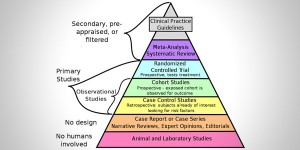By Soraia Tomás

Having earned a degree in Nursing from Escola Superior de Enfermagem de Coimbra in 2015, Soraia Tomás worked in the intensive care unit of cardiothoracic surgery and lung transplantation in Lisbon. In 2020, she obtained a graduate degree in GMPs for Medicinal Cannabis, a course held by the Portuguese Observatory of Medicinal Cannabis in partnership with the Military Laboratory of Chemical and Pharmaceutical Products and the Faculty of Pharmacy of the University of Lisbon. A specialist in Pain Control, she is currently working in an intensive care unit and providing counseling and nursing supervision to patients using Medicinal Cannabis. She is President of APCANNA – the Portuguese Association for Information about Cannabis, a non-profit association, formed in 2020, whose main mission is the dissemination of reliable information about the cannabis plant in all its aspects, being a representative voice of the Portuguese community and its interests.
The advances in medicine over the past few years have been remarkable, and European countries are currently facing a profound change in their demographic, epidemiological, and sociocultural profile, which consequently poses major challenges to society, health systems, and patient care, due to the increment of conditions and disorders that are resistant to the currently extant therapeutic options.
In order to specifically address health needs, the nursing profession has evolved in terms of training, scientific and technological knowledge, and care philosophy. Care for others is the essence of nursing and is central to its entire history and approach to professional training.
According to the nursing code of ethics and deontology, the nurse is the responsible agent for promoting health and appropriately meeting the needs of the community in which she/he is professionally inserted. The dissemination of information and respect for self-determination are also a duty of these health professionals, who assume a crucial role in patient education. Thus, by providing person-centered care, nurses have the duty to seek excellence throughout their professional practice, keeping their knowledge continuously updated and implementing mechanisms to respond to the patient's health situation, collaborating with other professionals in programs that match their needs.
The discovery of the endocannabinoid system has prompted not only scientific research about the cannabis plant, but also its use to relieve symptoms resulting from several conditions. Therefore, in the last few years, several European countries have made legislative changes in order to regulate the use of this plant for medicinal purposes. In Portugal, the use of medicines, preparations, and substances containing this plant has been allowed for medicinal purposes since 2018. Medical prescription is needed and it is dispensed exclusively from pharmacies.
The legislative changes regarding the medicinal use of this plant highlight not only the need for an accurate, comprehensive understanding of its properties, but also the need for investment in prevention, diagnosis, and monitoring of these patients, thus rendering crucial the transition from the biomedical model to a person-centered and multidimensional approach. The growing interest in this field among several classes of health care professionals is remarkable. However, there is still a significant gap regarding the variety of products available and investment in the education of these professionals.
As opposed to the normal path of any other new drug becoming available, the use of cannabis in a medical setting was initially driven by patient interest and pressure rather than by extensive scientific research. Although early regulation and access to plants grown in appropriate settings complying with the required quality standards for the cultivation, extraction, and manipulation of a drug was advantageous, today, we can also identify some shortcomings stemming from these early implemented programs, particularly regarding the level of knowledge and education of the health professionals who monitor these patients.
My professional experience
In the very beginning of February 2021, the first "cannabis-based substance or preparation" was approved in Portugal. This flower, with 18% THC and less than 1% CBD, is only indicated in cases where conventional treatments do not produce the expected effects or cause relevant adverse effects. Taking into account its THC concentration, this flower is approved by INFARMED for six of the seven therapeutic approaches currently indicated for the prescription of cannabis, namely for the treatment of chronic pain (associated with oncological diseases or the nervous system, for example in neuropathic pain caused by nerve damage, phantom limb pain, trigeminal neuralgia or after herpes zoster).
Since then, and considering my nursing practice in a Pain Management Clinic, I have been monitoring several chronic pain patients who have been prescribed the above-mentioned flower. This nursing follow-up always begins with an initial assessment, when personal and anthropometric data, personal and family health history, current health history, and information on current medication are collected. Subsequently, and depending on the medical diagnosis, the recommended scales are applied (Short Form Health Survey – SF36, Brief Pain Inventory – BPI, and Insomnia Severity Index, among others). This is followed by teaching about the treatment itself: how it acts, drug interactions, and possible adverse effects. Since we have the current certified and approved medical device for the administration of the flower at my workplace, the patient is informed on how to manage it, and a document is provided with the appropriate form of titration for the first few days. This is personalized for each patient, considering all the parameters previously assessed. A card is also given with the nursing contact details and, in agreement with the patient, a plan is established for telephone follow-up at the end of the first, second, and third weeks of treatment. In this contact, the doubts and difficulties of the person, regarding the proposed therapeutic plan, are evaluated. If necessary, and depending on need, coordination is arranged (in person or by telephone) with the physician responsible for the patient to alter/adjust the therapeutic scheme. The previously given recommendations in health education sessions and in the initial nursing appointment are also reinforced.
For the operationalization of this intervention, a script interview was developed, in which data is collected in a standardized way with the aim of evaluating the symptoms and the impact of treatment. This close follow-up of the patient promotes treatment compliance and effectiveness, as it endorses the feeling of safety, comfort, and care during this early phase, considering that most patients, besides finding it difficult to manipulate the device, also experience high levels of anxiety during the first administrations.
The frequency of the remaining nursing contacts is determined by the effectiveness of the education provided during the first month, the impact of the therapy itself, and the qualities of each patient. At the end of the first, third, sixth, and twelfth months, a face-to-face medical and nursing consultation is held, in which the impact of the treatment is assessed, the dosage is adjusted, and the same scales as in the initial assessment are applied. This follow-up protocol is designed to evaluate the impact of the therapeutic treatment in terms of symptom mitigation and quality of life improvement.
According to my professional experience, in the follow-up of patients diagnosed with chronic pain who are prescribed cannabis, the impact of this therapeutic tool differs from patient to patient. However, during the initial phase, a significantly positive impact is generally observed in terms of anxiety reduction and sleep quality improvement. Such alterations consequently lead to mood and sometimes also appetite improvement, promoting quality of life and positively impacting on how the patient experiences pain, even before its intensity actually decreases.
The importance of nursing care
Throughout my professional practice as a nurse working with patients undergoing medicinal cannabis treatment, it was possible to witness the significantly positive impact that nurses have in this context, promoting not only the efficacy and safety of the treatment but also patient compliance.
This follow-up should rely on a multidisciplinary approach and a longitudinal vision considering the different treatment stages. The biological, psychological, and social domains of the individual must be considered in the attempt to achieve the best performance, autonomy, and risk reduction associated with this treatment. The goal is not only symptom relief, but also the promotion of autonomy, quality of life, personal well-being, and involvement around the concept of personal recovery, helping the patient to manage their own disease by acquiring knowledge about it, and to manage their own life without constant assistance.
The development of competencies in this specific area enables nurses to perform a grounded intervention based on scientific evidence, targeting a situational health context in the care of the person/family, thereby empowering them to be more efficient and effective in their intervention.
Between 2019 and 2020, two surveys were conducted (Canada and Spain, respectively) in which the perceptions of future nursing professionals regarding their knowledge and interest in the use of medicinal cannabis during their professional practice were assessed. Both concluded that most future nurses are interested in acquiring skills related to this field; however, they recognize that, currently, there is still no structured and standardized curricular program that would allow them to acquire the necessary competencies for an appropriate follow-up of these patients. In addition, they also reported that their current knowledge is biased by several factors (religious convictions, knowledge acquired through personal experience, and scientifically unreliable sources of information) that are not directly related to the state of the art and that can have a considerable negative impact on their attitudes and beliefs around this topic. [1,2]
These data highlight the importance of investing in the education and structured training of nurses, professionalizing their contribution through the acquisition and consolidation of new concepts and skills related to the complexity of the endocannabinoid system and the use of cannabis in medical settings.
In my opinion, and considering the points discussed above, it is crucial that, in the short term, good nursing practice standards are defined in the context of the patient undergoing cannabinoid treatment, covering both the nursing process and the professional performance requirements of any registered nurse who aims to incorporate knowledge of this treatment into their practice. This commitment will promote the establishment of multidisciplinary teams that are informed, collaborative, motivated, and receptive to new treatment options, leading to significant improvements in the health of patients, communities, and health systems.
Bibliography:
[1] Balneaves L., and Alraja A., "Guarding their Practice": a Descriptive study of Canadian Nursing Policies and Education Related to Medical Cannabis BMC Nursing (2019) 18:66 https://doi.org/10.1186/s12912-019-0390-7
[2] Pereira L., Núnez-Inglesias M., Domínguez-Martís E., López-Ares D., et al. Nursing Students' Knowledge and Attitudes Regarding Medical Marijuana: A Descriptive Cross-Sectional Study Int. J. Environ. Res. Public Health, 17, 2492; (2020) doi:10.3390/ijerph17072492


